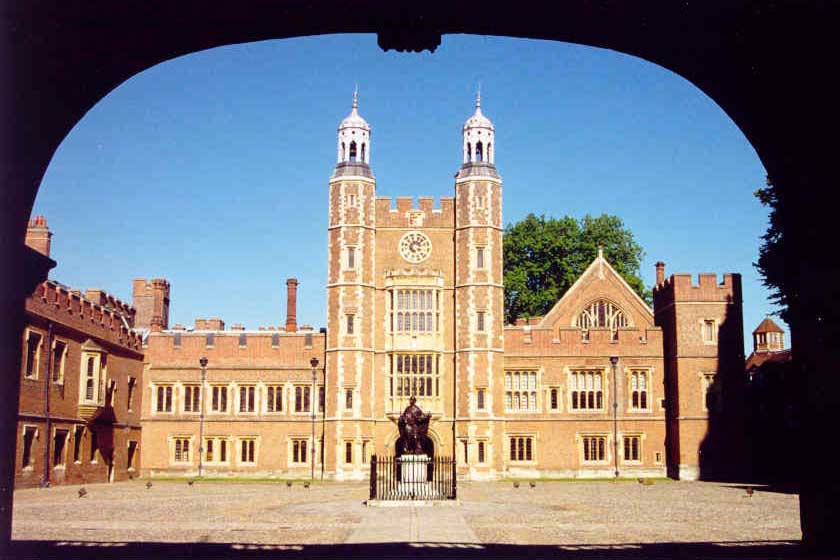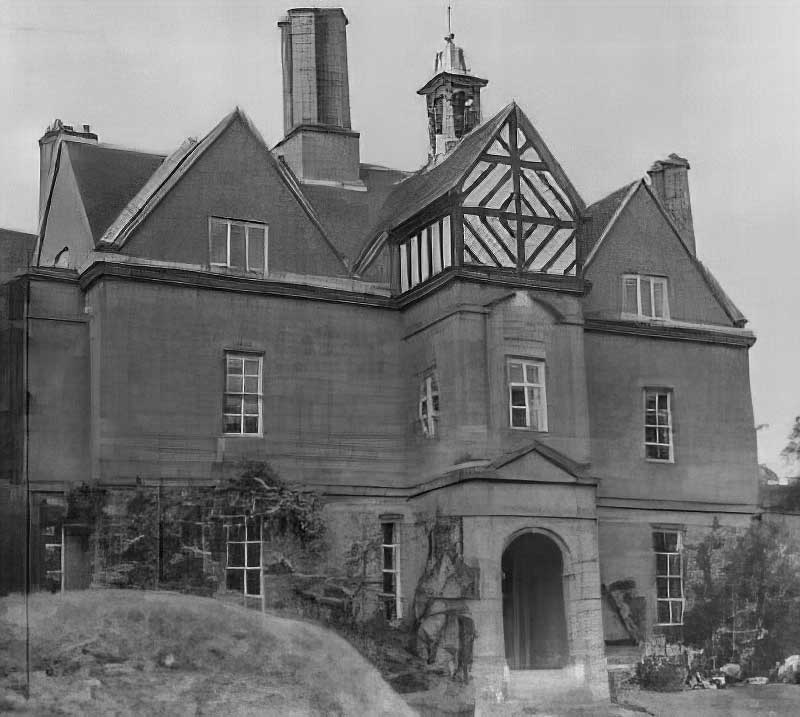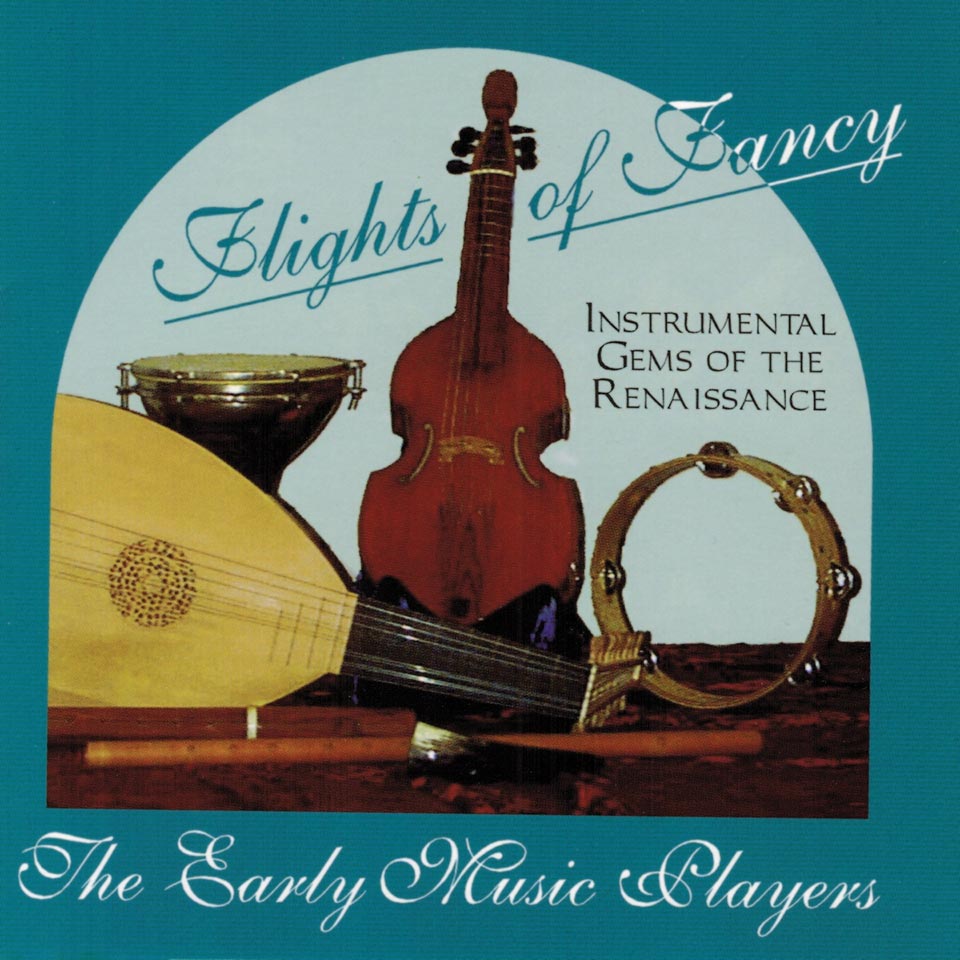The Warlock archive at Eton
Felix Aprahamian Warlock Collection
When the history of the Peter Warlock Society comes to be written, 22 February 2002 will figure as an important date in its calendar, for this was the date of the acquisition of the Felix Aprahamian Warlock Collection by Eton College Library, and on that occasion the College did the Society proud in ways that far exceeded the call of duty.
Felix Aprahamian – photo by Richard ValentineFelix, a senior member of the Society’s committee, is an eminent musician in his own right, a distinguished writer and journalist and a friend of almost every composer of note. His amusing stories of encounters with, for instance, Delius and Poulenc, mask a fundamentally serious and dedicated attitude to music, and nowhere is this more apparent than in the splendid music archive to be found at his home – affectionately known as “The House of Usher”.
The BBC has inevitably led the way in the guidance of musical taste over the past seventy years, and for the most part this influence has done nothing but good. However, with the appointment of William Glock as Controller of Music in 1959, an important period of British music seemed to find little favour. The English pastoral tradition in particular was largely ignored and the music of Peter Warlock, one aspect of this genre, was thrown out with the bath water.
The advent of Classic FM brought a healthy form of competition to Radio 3 which has been forced to reduce its promulgation of the avant-garde. As a Radio 3 producer myself, I was able to take advantage of Glock’s recent departure to mount in 1984 a series of almost all the Warlock songs. He is now taking his place as a composer of significance with the general public rather than within the confines of a small group of enthusiasts. The establishment of the archive at the composer’s old school can only hasten this process, and the Society recognises with gratitude its debt to the College.
Making our way to the College Library we were impressed by the grandeur of the quadrangle adjoining the chapel, which brought to mind Tom Quad in Christ Church, Oxford. In the Library, the material donated by Felix was laid out in exemplary fashion. The original manuscripts displayed Warlock’s exquisite penmanship, even extending to careful spacing along the staves thus avoiding blank spaces. In addition there was on display music already in the College Library with Warlock associations. He had taken part as a schoolboy in a performance of Parry’s Eton, an Ode conducted by the composer.
Felix and Ralph Allwood – Director of Music Eton CollegeWe were then entertained to a reception in the Provost’s Lodge, where we had the opportunity to talk to members of staff and to find out more about the school. It emerged that music scholarships are on offer, which pay school fees in their entirety, and the school also now accepts girls.
When the acquisition of the archive was first raised with the librarian of Eton, Malcolm Rudland and the school’s Director of Music, Ralph Allwood, had the idea of a Warlock concert given by the boys. This took place in the Election Hall after the reception and even though I had already been told that much time was spent choosing visiting singing teachers, nothing could have prepared us for the high standard that we heard.
The programme consisted of some two dozen soloists (who also formed an SATB chorus) in a corresponding number of songs, together with five accompanists. It is impossible to describe every performance in detail; suffice it to say that every voice (whether treble, tenor or baritone) showed evidence of careful training and of considerable potential. Voice production was at a high standard and intonation in the more chromatic songs was always true and accurate. Even Felix:, the professional critic, confessed to being overwhelmed by the performances. He also noted, as a sign of the times, a concession to contemporary sensibilities. In Mr Belloc’s Fancy the poet JC Squire had written “a very fine taste the Jews have not”; this became “a very fine taste some Jews have not”. [Editor’s note: I don’t think that we should get too upset about this. Squire’s verse satirised Belloc’s own anti-Semitism and, at the end, the latter’s predilection for gratuitous Latin interpolations. On these grounds one should stick with the original words and offer an explanation afterwards if needed.]
An interesting link with musical history arose in the case of Edward Bainton, singer of Rest Sweet Nymphs. He is a direct descendant of Edgar Bainton who, though London born, became Director of the Sydney State Conservatorium of Music and met Felix in 1953.
The programme had been skilfully arranged so that groups of songs alternated with ensemble pieces and, rather than list every song and every singer, both songs and performers were listed in groups, so that it was not always possible to tie song to name with certainty. Those songs that called for mature imagination were no less effective for being sung by young people and I was particularly impressed by the treble, Christopher Rees, whose sense of line and phrasing displayed the instincts of a true performer and by Tim Dickinson, soon to join the choir of Trinity College, Cambridge, awaiting only A-level results. We wish him the best of luck. One of my daughters is reading music at Oxford, and she tells me that there it is recognised that tenors and basses from Eton can be relied upon to be of the highest standard. Two of the excellent accompanists also performed solo songs and we cannot commend their versatility enough.
The concert began with the soloists singing, in chorus and without a conductor, Benedicamus Domino, and it was clear that we were in for a memorable evening with tone, blend, intonation and ensemble at a high standard. After the concert I enquired who had rehearsed them but, it appeared, “they just got it together themselves.
Two movements from Capriol in its piano duet version showed fine judgement in choice of tempo, Maltworms was given an uninhibited and (apparently) semi-inebriated performance, and the concert ended with a quite hypnotic performance of Bethlehem Down.
The overall impression was of a group of young people who had been trained not only in the art of singing, but also in the art of performance. Even more impressive was the vocal maturity of tenors and basses who cannot have been in possession of their voices for more than five or six years. They showed not only poise and confidence but could enter unreservedly and unselfconsciously into the feeling of each song and, furthermore, convey their feelings to us without ostentation. They were greatly helped by a group of sensitive and able accompanists who dealt in summary fashion with the sometimes notoriously difficult piano parts.
Malcolm Rudland tendered a vote of thanks for the hospitality accorded to the Society acknowledging, in particular, the work of Ralph Allwood, and those responsible for the high standard of singing – Margaret Humphrey Clarke, Anita Morrison and Robert Rice.
Re-reading this article, I find that it contains many superlatives. I would not wish to change one of them.
Article by Eric Wetherell. Photo courtesy of Eton College.




